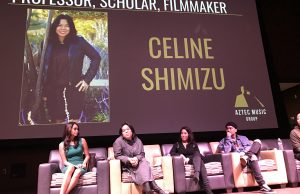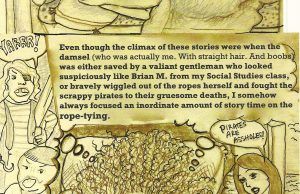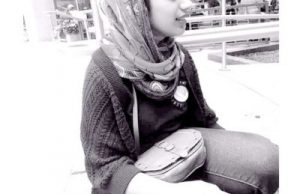“Love that Girl” but Hate “those” Boys?
“Love that Girl” is a new show on TVOne, starring Tatyana Ali who is best known for her role as Ashley on the “Fresh Prince of Bel-Air.” Actor Phil Morris appears as the father. Both Morris and Ali have been nominated for NAACP Image awards based on “Love that Girl.” The show is written and directed by Bentley Kyle Evans, whose previous work includes “Martin” and “The Jamie Foxx Show.” Executive Producers include Martin Lawrence and Jeff Franklin (“Full House”). With this list of accomplished actors, writers, directors and producers it is unfortunate that “Love that Girl” resorts to sophomoric jokes, particularly at the expense of gays.
The show’s description on the TVOne website highlights Ali’s character, her family and best friend, but makes no mention of the more controversial characters on the show. Only those who actually watch the show or search alternate websites will know about the characters Adonis (Mark Adair-Rios) and Fabian (Peter Oldring). Neighbors of Ali’s character (Tyana), Adonis and Fabian are a gay couple who seem to have been created in world that has never seen “Will & Grace” or “Ellen.” Adonis and Fabian have more in common with Nathan Lane and Hank Azaria’s characters in “The Birdcage” (1996) — overly feminized and enormously camp. However, “The Birdcage” was set in a drag club and the ultimate message of the film was one of acceptance (and family reconciliation). “Love that Girl” has no such message – at least not when it comes to Adonis and Fabian.
Instead, these two characters flit on and off-screen in pink shirts, tight shorts, flowing silk pajamas and feather boas, lisping and exaggerating every movement. Adonis has a particularly disturbing (and stereotypical) lisp which is even more pronounced due to an overt Spanish accent. Rather than integral to most of the show’s plots, the two gay men appear to only be used for comic effect – the audience is invited to laugh at these giggling, lisping, prancing caricatures of gay masculinity while maintaining an allegiance to the main plot: the heterosexual relationships of Tyana and her family members. Her brother, Latrell (Alphonso McAuley) spends as much time chasing women as he does working on his stand-up career. In interactions with Adonis and Fabian, his presence highlights their “deviant” masculinity through his overt heterosexuality.
In one episode, Latrell runs away from Adonis and Fabian (who are trying to give him a hug), as if touching them would somehow call into question his own masculinity, or worse, as if gayness is “catching” like a disease. His fears, we are meant to believe, might be justified as Fabian then makes a comment about Latrell being attractive. The scene ends with Adonis angrily and jealously leaving the apartment, at which point Fabian (referring to Adonis) says: “That kitten has claws – mee-ow! She’s just afraid of losing me but who can blame her?” He then follows Adonis, we presume to make up and have sex. There is an awkward pause, and a close-up on Latrell who gestures towards the door and says, “Wow.” The audience explodes with laughter and, perhaps, relief. Their discomfort, shared by Latrell, can be cast aside and the “real” business of the episode (the relationship between Tyana and Latrell) can begin.
“Will & Grace” endured controversy for the entirety of its run. However, the Internet is unusually quiet on the subject of portrayals of gays on “Love that Girl.” Is this silence due in part to the fact that “Love that Girl” has an almost all-black cast? Adair-Rios and Oldring are the only non-black actors. In addition, “Love that Girl” runs on an African American-owned and operated network, TVOne. These facts seem significant, given the long history of homophobia in much of the black community and our society’s continued hatred and violence against gays (of every race and ethnicity).
In 2008, 70 percent of California’s black voters voted for “Proposition 8” (the state’s ban on same-sex marriage). The black church has a long history of intolerance for gays and lesbians. When Pastor Benjamin Reynolds came out of the closet recently, the move was followed by his resignation of his position; and, as Rev, Reynolds stated, he is “considered an outcast now.” In addition, on March 30, 2011, a gay black man was severely beaten in New York’s West Village. Anthony Collao, an 18-year-old straight man, died of his injuries after being beaten at a party earlier in March. The perpetrators yelled anti-gay slurs before they began beating him to death, apparently believing he was gay.
Given these events, it is even more disturbing that “Love that Girl” insists on feeding gay stereotypes. Images that support the idea that gay men are simply to be laughed at, or disposable, help create a society in which we do not have to consider the real-world consequences of denying gays (and lesbians) the full rights the rest of us enjoy. We allow the continued discrimination and violence against gays or those assumed to be gay. “Love that Girl” is not responsible for all of the homophobia in our society. But it isn’t doing anything to stop it.
_________________________________________________________________
 Ulli K. Ryder, Ph.D. is an award-winning educator, consultant, writer, editor and thinker. She facilitates discussions of gender, race, ethnicity, identity formation and media to foster diversity and create open dialogue.
Ulli K. Ryder, Ph.D. is an award-winning educator, consultant, writer, editor and thinker. She facilitates discussions of gender, race, ethnicity, identity formation and media to foster diversity and create open dialogue.
Her expertise has been sought by institutions such as the University of Southern California, the University of California – Los Angeles, Loyola Marymount University, the University of Rhode Island, Simmons College, Emerson College and Brown University. She has been a Visiting Scholar at Brown University since 2009.




0 comments